Will El Chapo son's arrest slow export of drugs to US? Next steps crucial, experts say
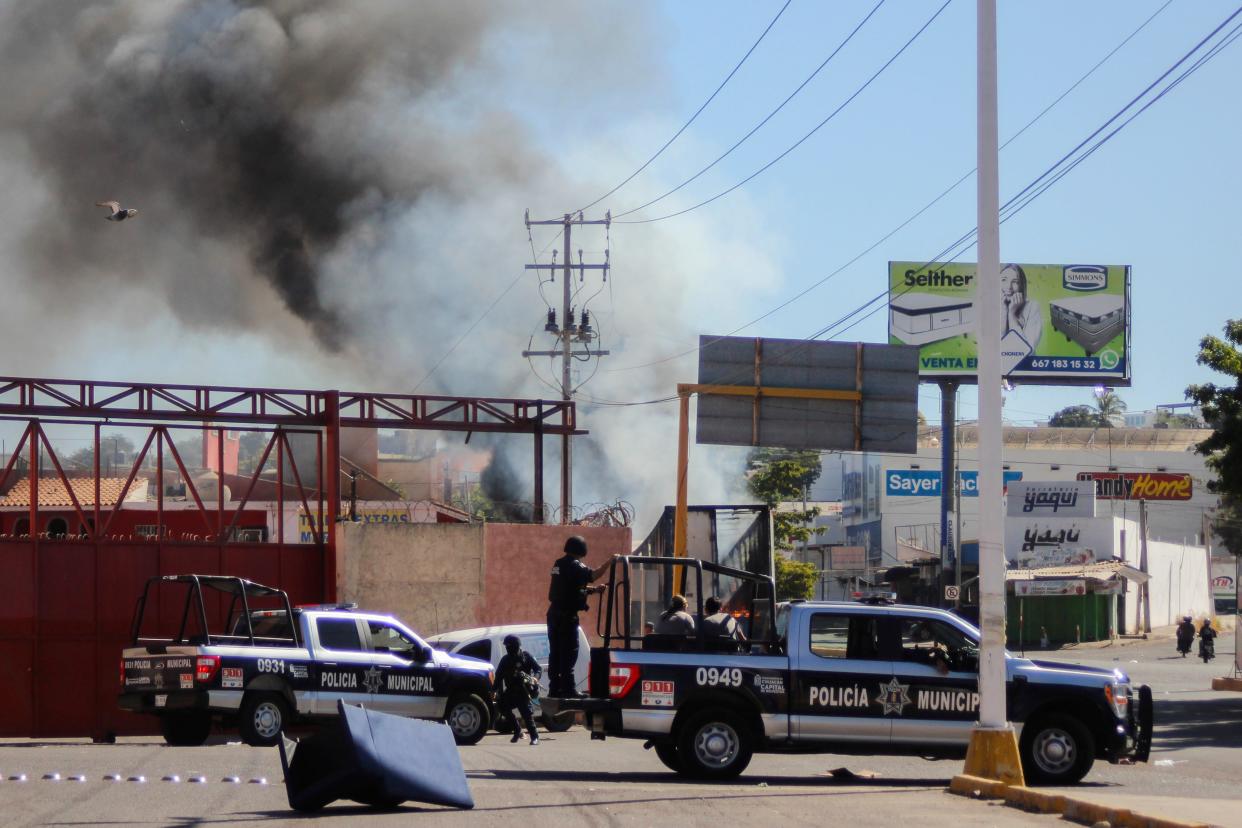
- Oops!Something went wrong.Please try again later.
MEXICO CITY – The arrest of Ovidio Guzmán, the son of former Sinaloa Cartel leader Joaquin "El Chapo" Guzmán, is an important step for the Mexican government, experts say, but it will likely have little effect on the flow of illegal drugs, particularly fentanyl, across the border.
“You're not going to see a big difference or a reduction in the amount of fentanyl coming to the United States. But having said all of that, it is still a very good arrest because there is no doubt that Ovidio was heavily involved in the day-to-day activities of the Sinaloa Cartel,” said former El Paso U.S. Marshal Robert Almonte.
The next step is important, Almonte said, adding it is simply not enough to arrest Guzmán, known as "El Ratón," or other cartel leaders. Mexican authorities need to extradite him to the U.S. to demonstrate that the Mexican government is serious about ending cartel control in Mexico and the world.
The clash surrounding Guzmán's arrest Jan. 5 in Culiacán resulted in nearly 30 deaths of Mexican officers and Sinaloa Cartel members.
Gunmen rampaged in Culiacán after Guzman was taken away, blocking roads and burning vehicles.
The arrest came on the eve of President Joe Biden’s visit to Mexico for the North American leaders' summit, leading some to label Guzmán's capture a political display.
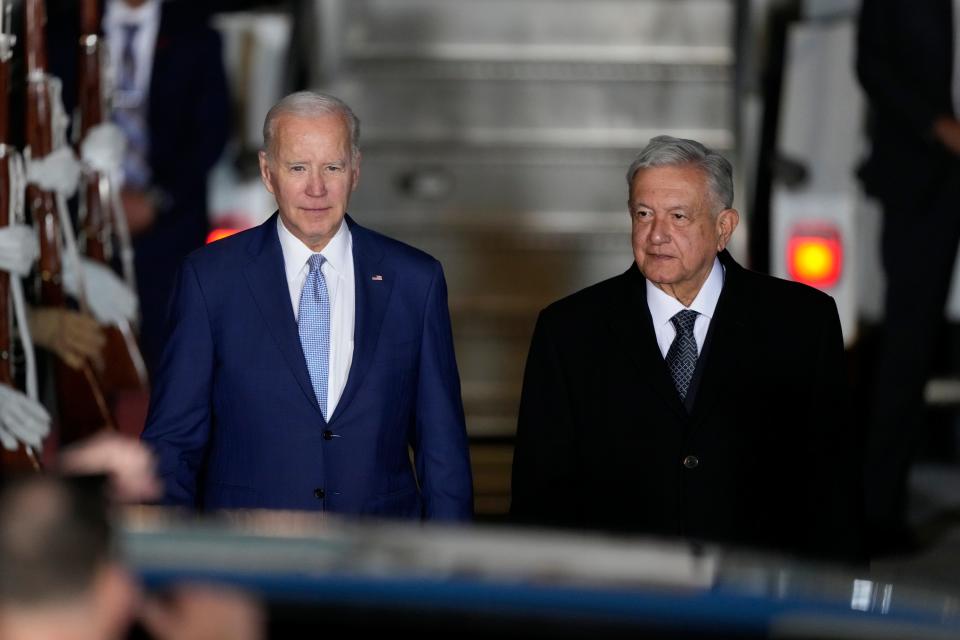
Matt Donahue, retired chief of the U.S. Drug Enforcement Administration's foreign operations, called the arrest a “political play or stunt.”
"We knew where he was" for years, said Donahue, who has worked in Mexico supervising agents targeting the Sinaloa Cartel and other drug smuggling powerhouses. "But they wouldn’t go get him until it was politically expedient."
The arrest of Rafael Caro Quintero in July 2022 by Mexican authorities came days after Biden met in Washington with Mexican President Andrés Manuel López Obrador. A former cartel leader, Quintero was wanted in the killing of a DEA agent in 1985.
More:Ignoring cartel danger, Mexican families scour wilderness for missing loved ones' remains
Guzmán and his siblings, known as "Los Chapitos," led the charge within Sinaloa years ago to move toward synthetic drugs – methamphetamine and fentanyl, and then fentanyl pills – driving up the death toll in the U.S., Donahue said.
National Drug Threat Assessment reports by the DEA point to Sinaloa and its top rival, the Cartel Jalisco Nueva Generacion, or CJNG, as the two super-cartels blamed for the bulk of illegal drugs found across the U.S.
Guzmán's arrest would have an impact on the flow of drugs into the U.S. only if he is extradited and agrees to cooperate with federal investigators, Donahue said.
“The amount of information he could give could really cause a lot of damage to Sinaloa Cartel and to corruption in that area,” Donahue said.
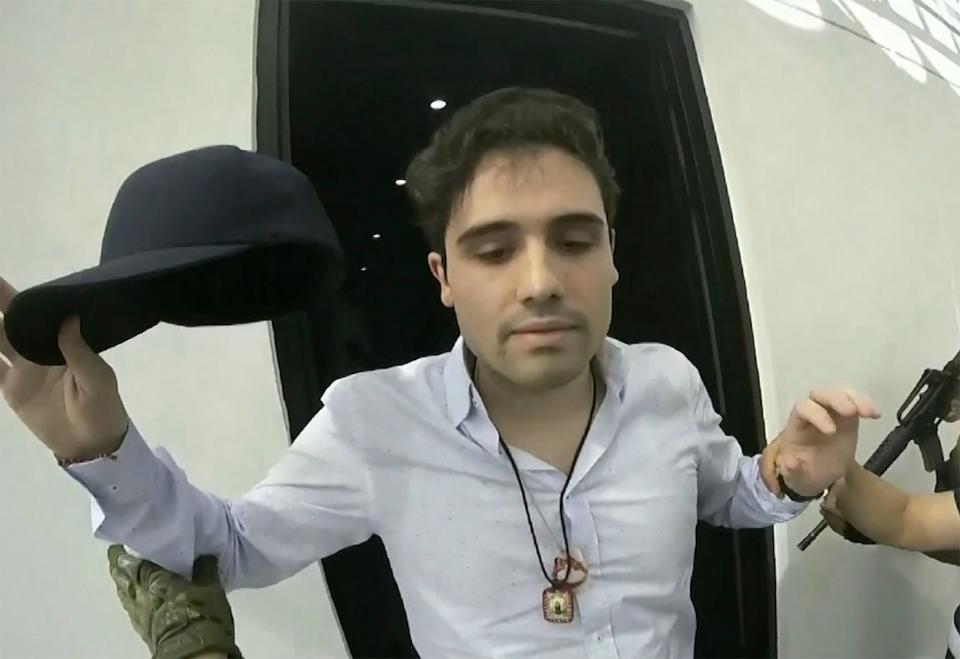
“He could corroborate the amount of fentanyl they’re making, where they’re making it, how they’re making it, how they’re getting the precursor chemicals, where their targets are in the U.S., their networks.”
But on Monday, a federal judge in Mexico halted Guzmán's extradition and ordered him to remain in detention for 60 days.
Guzmán's lawyer, Alberto Díaz Mendieta, told Mexican radio news station Radio Formula that the U.S. has those 60 days to formalize an extradition request for his client.
More:City hall massacre: Local Mexican leaders risk lives to stay in office in cartel territory
Mexican Foreign Minister Marcelo Ebrard said there has been an arrest warrant for Guzmán in the U.S. since 2019, but the extradition would not be immediate because “it has to run its course in Mexico first.”
“He isn’t going to be extradited,” Donahue predicted.
In 2019, the U.S. Department of Justice accused Guzmán and his brother, Joaquin, of a conspiracy to distribute cocaine, methamphetamine and marijuana for importation into the United States.
Even though Ovidio Guzmán is not the main leader of “Los Chapitos,” his face became the image of this group after a spate of violence surrounding his first arrest in 2019.
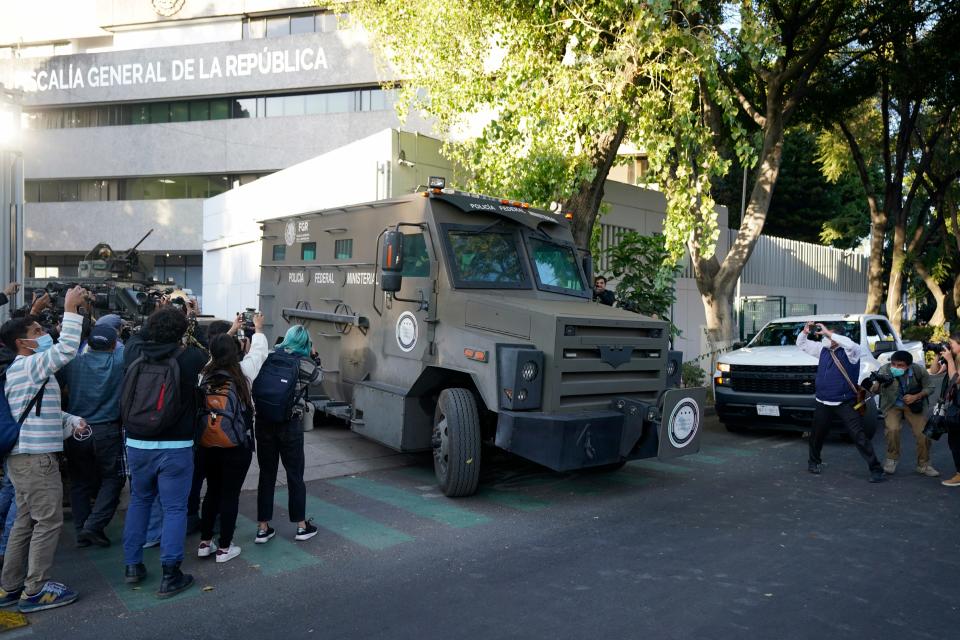
At that time, he was also captured in Culiacán by Mexico’s military, but the end result was different.
Soldiers were surrounded by cartel forces who started attacking civilians, burning cars and businesses. That led López Obrador to release Guzmán so the bloodshed would stop.
"You cannot fight fire with fire," the president said at the time. His policies in dealing with cartel-related violence, labeled "hugs not bullets," have since been widely criticized.
That only creates an incentive for cartels to cause more violence in the future to thwart other major arrests or extraditions, Donahue said.
On Monday, López Obrador denied claims that the Biden visit played a role in Guzmán's arrest, saying that kind of talk was “disrespectful” to those who lost their lives in the operation.
“It was a good accomplishment that they actually went out and they grabbed him, but I have no confidence that he will remain in custody without the ability to continue operations,” former U.S. Drug Enforcement Administration official Derek Maltz said.
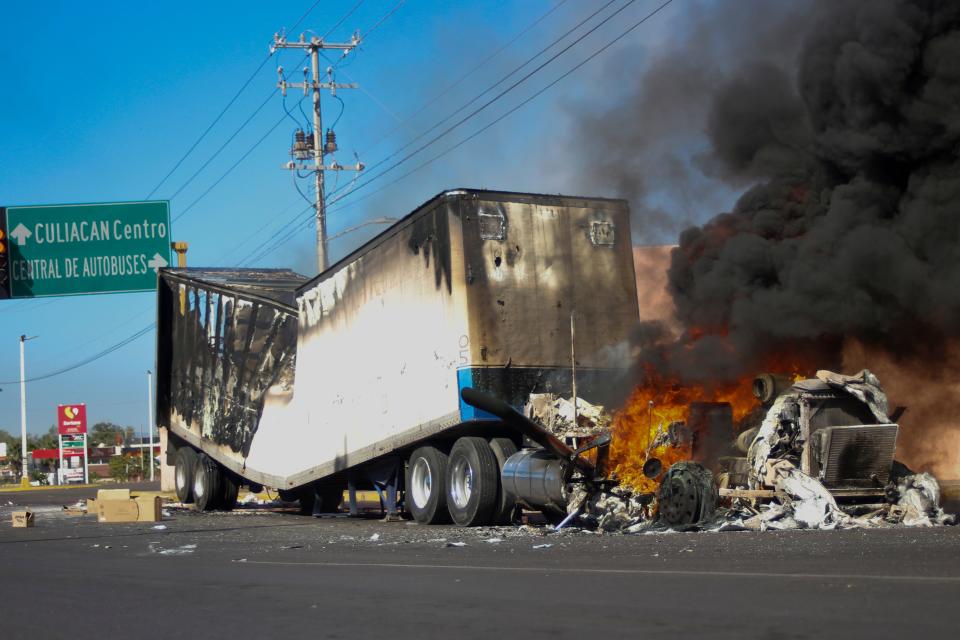
The DEA's El Paso Division announced the seizure of more than 50.6 million fentanyl-laced fake prescription pills and more than 10,000 pounds of fentanyl powder in 2022.
“The El Paso Division, which covers West Texas and the whole state of New Mexico, seized 2,886,783 of those pills and 261.5 of those pounds. The DEA Laboratory estimates that the El Paso seizures represent more than 9.8 million potentially deadly doses of fentanyl,” the statement reads.
According to the DEA, fentanyl is the deadliest drug threat facing the U.S. “It is a highly addictive man-made opioid that is 50 times more potent than heroin. Just 2 milligrams of fentanyl, the small amount that fits on the tip of a pencil, is considered a potentially deadly dose.”
Maltz said capturing the cartel leaders is not enough to stop the fentanyl that is entering the U.S. "It's about shutting down the precursor chemicals coming from China; it's about apprehending and extraditing these major targets to America and destroying those labs in Mexico."
Mexico-based Security Analyst Fred Alvarez agreed: "I think it requires many more things. Hit them in the pocket ... destroy the financial power structure of an organization like the Pacific (Sinaloa) Cartel."
In Mexico, a tense wait for the next move from drug cartels
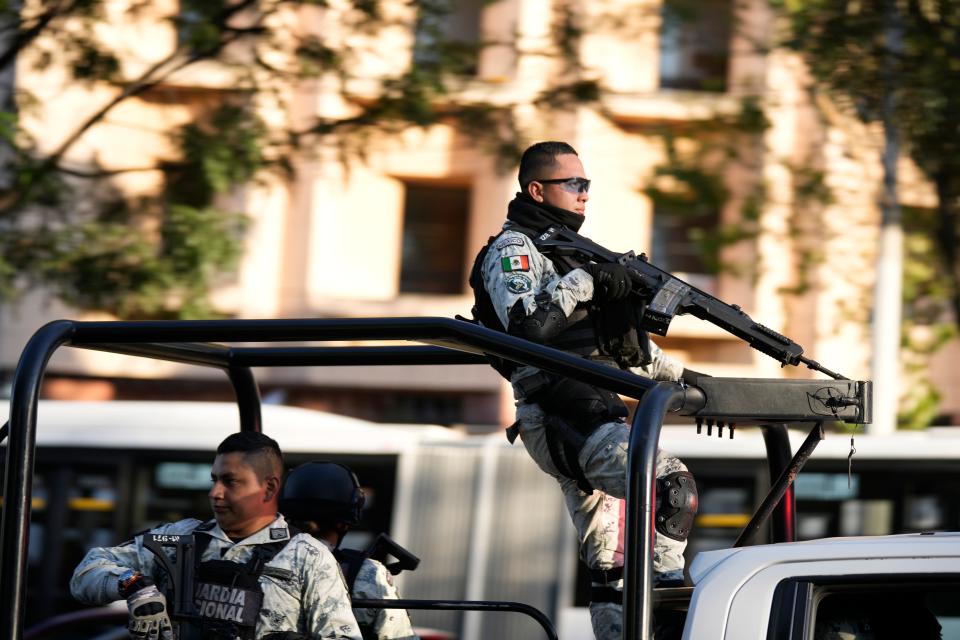
"There is a calm in these last hours," López Obrador said Friday after the violence that hit Culiacán in the Guzmán operation.
Nearly 4,500 Mexican soldiers were deployed in Culiacán hours after the arrest.
But despite the military presence and Guzmán's detention in Altiplano, a high-security prison west of Mexico City (the same prison from which his father, El Chapo, escaped in 2015), the calm felt across multiple Mexican states is combined with uncertainty about the next move from the cartels.
The arrest will probably lead to more killings within the Sinaloa Cartel, Donahue said, further fueling deadly internal power struggles since El Chapo’s conviction in 2019 and imprisonment in the U.S.
"Los Chapitos" are not the only faction of the Sinaloa Cartel. Even if the Mexican authorities capture other members of that group, important rival figures still control parts of the business.
More:How Mexican drug cartels are using TikTok to entice young people into organized crime
“A lot of people are forgetting about this other player, a major player in the Sinaloa Cartel. And that's ‘El Mayo Zambada’ – he's still there, and he's still involved in the activities of the Sinaloa Cartel,” Almonte, the former El Paso U.S. Marshal, said, referring to the main rival of "Los Chapitos."
“The government needs to attack all these members; they must be way more aggressive," said Maltz, the former DEA official. "They can't just sit back and let the cartels control what's happening in Mexico. They have to go after these cartels as they've never done before.”
And all the while, experts agree, the rival CJNG cartel is waiting and watching to try to take advantage of any misstep.
Karol Suárez is a Venezuela-born journalist based out of Mexico City. She is a contributing writer to The Courier Journal. Follow her on Twitter at @KarolSuarez_.
Reach Courier Journal reporter Beth Warren at: bwarren@courier-journal.com
This article originally appeared on Louisville Courier Journal: El Chapo's son arrested: Will it slow cartel export of drugs to US?

